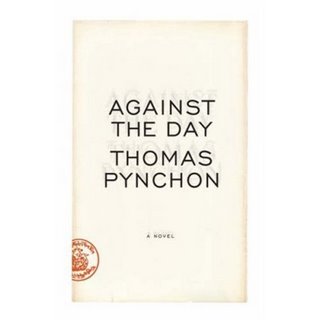
Por inesperadas dificuldades logísticas, a distinção aplica-se apenas às primeiras 780 páginas. As restantes serão provavelmente as melhores de 2007, mas isso é outra conversa.
Já agora, vale a pena ler isto:
«(...) But the size and sprawl of Pynchon's canvas proceed from an impatience with the limits of the novel form, and an ambition to hunt bigger game than the mere symbolic enactment of epochs and ideas through the collision of a handful of lives. The unstoppable proliferation of every kind of situation comes in part from a compulsion to keep himself and the reader entertained, but it is also wolfsbane nailed up against the possibility of reductive interpretation. (...) Pynchon thinks on a different scale from most novelists, to the point where you'd almost want to find another word for the sort of thing he does, since his books differ from most other novels the way a novel differs from a short story, in exponential rather than simply linear fashion. Pynchon's work has absorbed modernism and what has come after, but in its alternating cycles of jokes and doom, learning and carnality, slapstick and arcana, direct speech and poetic allusiveness, high language and low, it taps into something that goes back to the Elizabethans, who potentially addressed the entire world, made up of individuals with differing interests and capacities.»
Luc Sante, na New York Review of Books. De longe, a melhor crítica do livro que li até agora (e li 14). É assim que se lê e é assim que se faz.
Luc Sante, na New York Review of Books. De longe, a melhor crítica do livro que li até agora (e li 14). É assim que se lê e é assim que se faz.
No comments:
Post a Comment